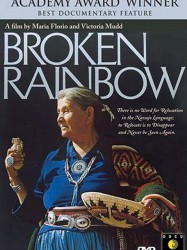The Harvest (La Cosecha) est un film américain de genre Documentaire
The Harvest (La Cosecha) (2011)

Si vous aimez ce film, faites-le savoir !
- Infos
- Casting
- Infos techniques
- Photos
- Vidéos
- Passages TV
- Citations
- Personnages
- Musique
- Récompenses
Durée 1h20
OrigineEtats-Unis
Genres Documentaire
Themes L'enfance, L'environnement, Le monde du travail, Documentaire sur le monde des affaires, Documentaire sur le droit, Documentaire sur l'environnement, Documentaire sur une personnalité, Documentaire sur la politique, Documentaire sur la maltraitance des enfants, Politique, Maltraitance des enfants
Note69%










The Harvest (Spanish: La Cosecha) is a 2010 documentary film about agricultural child labor in America. The film depicts children as young as 12 years of age who work as many as 12 hours a day, six months a year, subject to hazardous conditions: heat exposure, pesticides, and dangerous work. The agriculture industry has been subject to significantly more lenient labor laws than any other occupation in the United States. As a result, lack of consistent schooling significantly limits their opportunities of succeeding in high school or more. The hazardous conditions threaten their health and lives. The purpose of the documentary is to bring awareness of the harsh working conditions which tens of thousands of children face in the fields of the United States each year and to enact the Children's Act for Responsible Employment (CARE Act, HR 3564) which will bring parity of labor conditions to field workers that are afforded to minors in other occupations.
Commentaires
Postez un commentaire :
Suggestions de films similaires à The Harvest (La Cosecha)
Il y a 8975 ayant les mêmes genres cinématographiques, 13063 films qui ont les mêmes thèmes (dont 0 films qui ont les mêmes 11 thèmes que The Harvest (La Cosecha)), pour avoir au final 70 suggestions de films similaires.Si vous avez aimé The Harvest (La Cosecha), vous aimerez sûrement les films similaires suivants :

The Dark Side Of Chocolate (2010)
Origine Danemark
Genres Drame, Documentaire
Thèmes L'enfance, L'environnement, Esclavagisme, Documentaire sur le monde des affaires, Documentaire sur le droit, Documentaire sur l'environnement, Documentaire sur une personnalité, Documentaire sur la maltraitance des enfants, Maltraitance des enfants
Note74%





In 2001, the Chocolate Manufacturers Association formed an action plan entitled the Harkin-Engel Protocol aimed at ending child trafficking and slave labor in the cocoa industry.

Kony 2012 (2012)
, 30minutesRéalisé par Jason Russell
Origine Etats-Unis
Genres Documentaire
Thèmes Afrique post-coloniale, L'enfance, Le terrorisme, Documentaire sur le droit, Documentaire sur la guerre, Documentaire historique, Documentaire sur une personnalité, Documentaire sur la politique, Documentaire sur le terrorisme, Documentaire sur la maltraitance des enfants, Politique, Maltraitance des enfants
Note44%





Kony 2012 est un événement international organisé par le groupe Invisible Children. Le but recherché est de faire connaître mondialement Joseph Kony pour mieux faciliter son arrestation. Joseph Kony est responsable de crimes d'enlèvements d'enfants pour en faire des soldats, de réduction d'enfants à l'esclavage ainsi que l'esclavage sexuel pour les jeunes filles, de nombreux massacres civils, d'exactions et de nombreuses destructions et pillages réalisés par les troupes de chocs. Ce criminel est resté dans le silence pendant une vingtaine d'années à commettre ses crimes sans en payer les conséquences.

Zajatci bílého boha (2007)
, 51minutesGenres Documentaire
Thèmes Le thème de l'éducation, L'enfance, Esclavagisme, Religion, Sexualité, Erotique, Prostitution, Documentaire sur le droit, Documentaire sur une personnalité, Documentaire sur la politique, Documentaire sur la prostitution, Documentaire sur la religion, Documentaire sur la maltraitance des enfants, Politique, Maltraitance des enfants

Broken Rainbow (1985)
, 1h10Origine Etats-Unis
Genres Documentaire, Historique
Thèmes L'environnement, Documentaire sur le monde des affaires, Documentaire sur le droit, Documentaire sur l'environnement, Documentaire historique, Documentaire sur une personnalité, Documentaire sur la politique, Politique
Acteurs Buffy Sainte-Marie, Dennis Banks, Martin Sheen, Burgess Meredith
Note67%






Palestine - Les 18 fugitives (2014)
, 1h15Origine Canada
Genres Documentaire, Animation
Thèmes Afrique post-coloniale, Mise en scène d'un animal, L'environnement, Religion, Le monde du travail, Documentaire sur le monde des affaires, Documentaire sur le droit, Documentaire sur l'environnement, Documentaire sur la guerre, Documentaire historique, Documentaire sur la politique, Documentaire sur la religion, Documentaire sur le monde du travail, Mise en scène d'un bovin, Politique, Religion juive, Mise en scène d'un mammifère
Note71%





L'œuvre présente les efforts des Palestiniens habitant la ville et la région de Beit Sahour, en Cisjordanie, pour démarrer une petite industrie laitière locale au cours de la première Intifada, en cachant un troupeau de dix-huit vaches laitières aux forces de sécurité israéliennes qui considérait la production de laitages comme une menace pour la sécurité nationale d'Israël.

The Corporation (2003)
, 2h25Réalisé par Jennifer Abbott, Mark Achbar
Origine Canada
Genres Documentaire
Thèmes L'environnement, Maladie, La mondialisation, Le monde du travail, Documentaire sur le monde des affaires, Documentaire sur l'environnement, Documentaire sur une personnalité, Documentaire sur la politique, Documentaire sur la santé, Documentaire sur le monde du travail, Folie, Le handicap, Politique
Acteurs Michael Moore, Naomi Klein
Note79%





Ce documentaire montre l'évolution des Sociétés anonymes (appelées Corporations en anglais) aux États-Unis, reprenant leur histoire depuis leur apparition avec la Révolution industrielle, où elles étaient conçues pour répondre au « bien public » mais furent détournées de cet objectif par la recherche du profit.

Invisible Children (2006)
, 55minutesRéalisé par Jason Russell
Origine Etats-Unis
Genres Documentaire
Thèmes Afrique post-coloniale, L'enfance, Documentaire sur le droit, Documentaire sur la guerre, Documentaire historique, Documentaire sur une personnalité, Documentaire sur la politique, Documentaire sur la maltraitance des enfants, Politique, Maltraitance des enfants
Acteurs Jason Russell
Note77%





In the spring of 2003, Jason Russell, Bobby Bailey, and Laren Poole traveled to Africa to document the War in Darfur. Instead, they changed their focus to the conflict in northern Uganda, Africa's second longest-running conflict after the Eritrean War of Independence. The documentary depicts the abduction of children who are used as child soldiers by Joseph Kony and his Lord's Resistance Army (LRA). This film centers around a group of Ugandan children who walk miles every night to places of refuge in order to avoid abduction by the LRA.

Mugabe et l'Africain blanc (2009)
, 1h30Origine Royaume-uni
Genres Documentaire
Thèmes Afrique post-coloniale, L'environnement, Le racisme, Documentaire sur le monde des affaires, Documentaire sur la discrimination, Documentaire sur le droit, Documentaire sur l'environnement, Documentaire sur une personnalité, Documentaire sur la politique, Politique
Note76%





En 2008, Mike Campbell – l’un des derniers fermiers blancs au Zimbabwe face au violent programme de réforme agraire – prend le risque sans précédent d’attaquer le Président Robert Mugabe devant le tribunal du SADC (Communauté de Développement Sud-Africain) afin de défendre ses droits. Son exploitation agricole emploie plus de 500 travailleurs et abrite également leurs familles. Mike Campbell accuse Mugabe et son gouvernement de discrimination raciale et de violation des Droits de l’Homme. Embarqués dans un procès hors du commun, Mike et sa famille vont devoir faire face à la violence et à la cruauté du régime du dictateur. Ce documentaire retrace leur combat.

海と夕陽と彼女の涙 ストロベリーフィールズ (2006)
, 1hOrigine Israel
Genres Drame, Documentaire, Fantasy
Thèmes Afrique post-coloniale, L'environnement, Religion, Documentaire sur le monde des affaires, Documentaire sur le droit, Documentaire sur l'environnement, Documentaire sur la guerre, Documentaire historique, Documentaire sur une personnalité, Documentaire sur la politique, Documentaire sur la religion, Politique, Religion juive
Acteurs Mitsuki Tanimura, Yuria Haga
Note64%





Strawberry Fields points out that strawberries grown in Gaza are the only agricultural product marketed internationally as being of Palestinian origin. One of the major Gaza strawberry farms in located at Beit Lahiya. More than 1,500 tons of strawberries are exported from Gaza to Europe through the Israeli company Agrexco. In order to get overseas, however, the fruits need to pass through the checkpoint that separates Israel and Gaza. The 2005–2006 growing season coincided with the Israel's disengagement from Gaza and the rise of Hamas as the ruling political entity. The armed conflict between Israel and Hamas resulted in the closing of the border checkpoint. The strawberries grown at Beit Lahiya cannot leave Gaza, resulting in significant losses for the farmers and their Agrexco partners. Unable to transport their produce, the farmers have no choice but to dispose of their crop and prepare for the following year’s growing season.

H-2 Worker (1990)
, 1h7Réalisé par Stéphanie Black
Origine Etats-Unis
Genres Documentaire
Thèmes L'environnement, Le monde du travail, Documentaire sur le monde des affaires, Documentaire sur l'environnement, Documentaire sur la politique, Politique
Note71%





 Connexion
Connexion